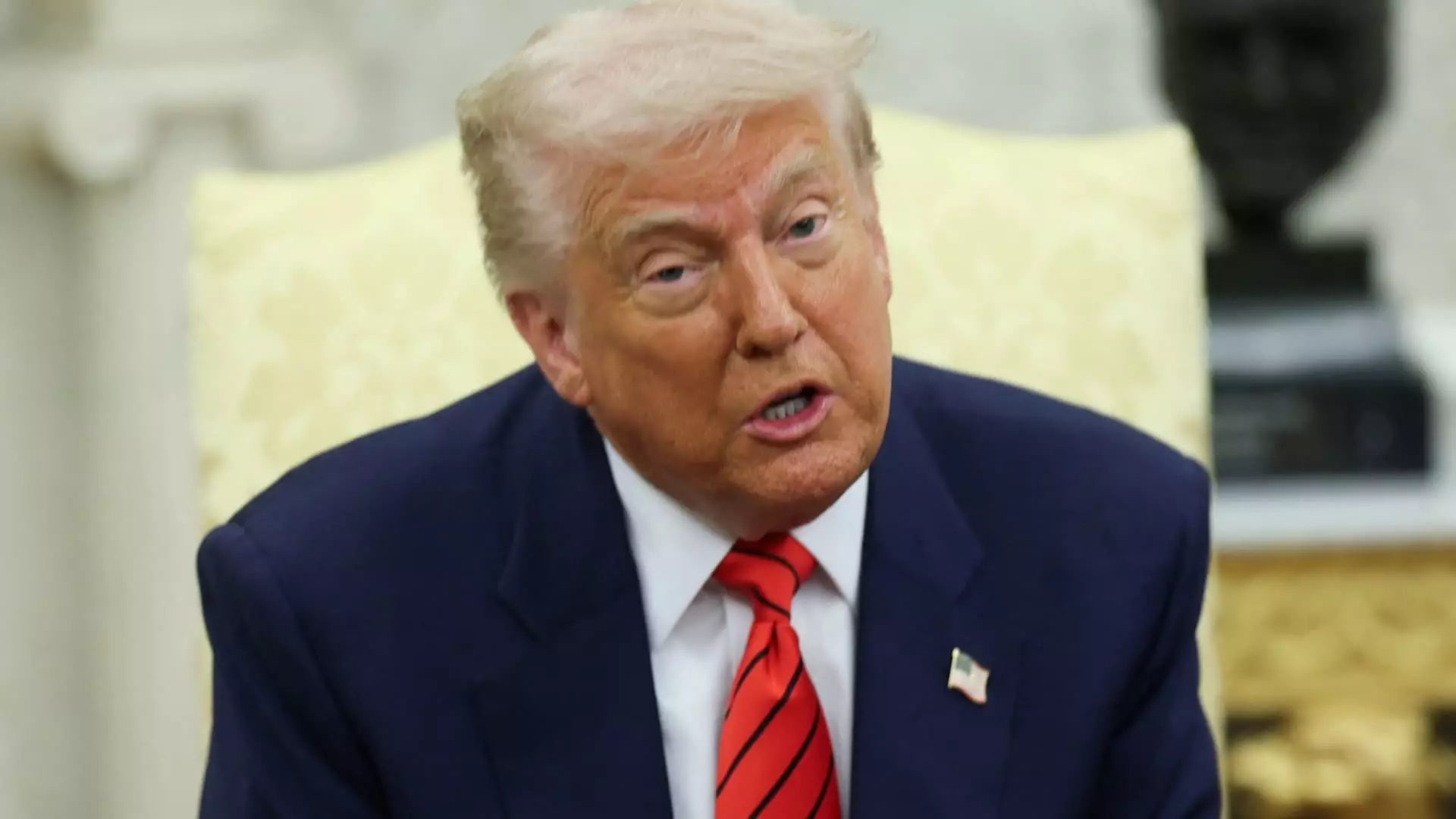A significant aspect of economic governance lies in how nations engage with one another through trade agreements. However, recent statements from former President Donald Trump have added layers of confusion and skepticism to his administration’s approach to these essential economic partnerships. Trump’s assertion that “we don’t need to sign deals,” which he made during a meeting with Canadian Prime Minister Mark Carney, starkly contrasts the earlier messaging of his administration, which prioritized trade deals as a fundamental aspect of its economic strategy.
One can’t help but wonder: how did we arrive at this contradictory mantra? For weeks, key officials within the Trump administration had created an air of anticipation over impending deals with countries like India, South Korea, and Japan. Yet, Trump’s disenchanted commentary seemed to indicate a stark reversal of priorities—a move away from negotiated agreements towards a quasi-monopolistic trade philosophy. He was adamant that the U.S. merely needs to assert its dominance in the market without engaging in formal contractual obligations, a notion that rattles the conventional understanding of international trade.
Frustration Breeds Inconsistency
It’s intriguing how the self-proclaimed “master negotiator” displayed frustration at the plethora of calls for tangible trade agreements. Trump’s circular reasoning—that the U.S. doesn’t need deals but still desires potential negotiations—forms a perplexing narrative around his administration’s trade policy. The irony is palpable; his own Treasury Secretary Scott Bessent asserted on national television that the U.S. was “very close to some deals,” while Trump painted a contrasting picture that dismisses the need for these very agreements.
This apparent feedback loop reflects deeper issues within the administration; it raises questions about effective communication and strategy. Trump himself pointed fingers at his aides for promising too much without delivering, emphasizing a lack of cohesive messaging within the administration. The inability to provide a clear and consistent stance on trade makes it increasingly challenging for businesses and investors to navigate the uncertainties swirling in the market.
The Peril of Unilateralism
When Trump posits that the U.S. should adopt a stance of being a “super luxury store,” he is advocating for an approach that can only be described as unilateralistic. Such a standpoint seems to suggest that the U.S. could afford to impose a higher cost on global trading partners while expecting them to come crawling for access to its market. This overconfidence may stem from America’s economic prowess, yet it misrepresents the symbiotic nature of global trade.
It’s critical to note that countries often demand equal partnerships and mutual benefits; Trump’s unwillingness to acknowledge this could lead to serious repercussions. The long-term implications of such an economic philosophy threaten not only relationships with key trading partners but also the livelihoods of American workers who depend on sectors thriving from international trade.
The Investor Backlash
Trump’s controversial remarks have had immediate consequences on market sentiment. Stocks tumbled after he flippantly dismissed the urgency for commercial agreements, and many in the business community expressed trepidation regarding his unpredictable leadership style. The stakes are undeniably high; these private-sector leaders are counting on open trade channels to safeguard their growth and stability during self-imposed tariff crises.
Conversely, this reluctance to engage formally can lead to a stagnation of beneficial market flows. The ripple effects could be felt across various economic segments, causing higher consumer prices and reduced selection for American families. The message conveyed through Trump’s contradictory commentary is not just confusion—it’s a potential warning bell about the health of the U.S. economy.
The Dilemma of Public Expectations
As Trump struggles to navigate the tumultuous waters of international trade, public expectations are undoubtedly at odds with his actions. Despite his administration’s grand rhetoric about the benefits of trade agreements, the reality of delayed negotiations and lofty promises threatens to dismantle the trust that American citizens place in their leaders.
Trade is not merely an economic framework; it is a complex interplay of relationships, strategies, and expectations. If the Trump administration continues to obscure rational discussion about these crucial bilateral agreements, it may not just be markets that suffer but the entire economic fabric of the nation as well. The real challenge lies in recalibrating the discourse around trade—not as an adversarial engagement but as a cooperative enterprise.

